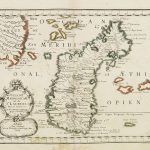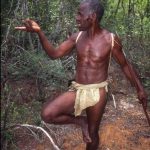Three things you may not know about Madagascar

Madagascar is a unique and original destination.Madagascar tour operator wants you to discover in detail. Here are three more reasons to convince you and pique your curiosity.
Where does Madagascar come from?
You’ll probably think it comes from the Gondwana supercontinent as written on Voyagiste Madagascar’s website. But really, the name Madagascar comes from what exactly? In fact, this is not a Malagasy word and the word’s root Madageiscar does certainly not come from the local language. First, it does not sound malagasy; and second, malagasy alphabet does not contain the C letter. Europeans were then the ones who popularized the word.
According to the memoirs of Marco Polo, the Venetian explorer of the thirteenth century, in his book « Le devisement du monde », the word comes from the deformation of Mogadishu, the capital of Somalia, that he confused back then with the current Island Madagascar. He thought he was on the east African coast.
 In 1500, the Portuguese explorer Diego Dias named the Big Island Sao Lourenco after his first day on the island, the St. Laurence day.
In 1500, the Portuguese explorer Diego Dias named the Big Island Sao Lourenco after his first day on the island, the St. Laurence day.
However, the name given by Polo was better received and more popular by the usage of maps during the Renaissance era. In addition, the name appears in none of Madagascar designations used by local people, although some communities have their
own name for part or all of the island they inhabited. Ultimately, this word has no meaning in the local Malagasy language.
The Madagascar Plan
We all know a little or a lot about the Nazis and their ideology and history. But too few of us know that this german government wanted to relocate some 4 million Jews from Europe to the island of Madagascar according to the “Madagascar Plan”.
The concept was not new since in 1885 Paul de Lagarde, an orientalist semitic learned, suggested it for the first time. The idea has crossed times and debates rooms until in 1938, Adolf Hitler and his nazi ideologues agreed to deport the Jews of the european continent to an african colony. One of the recommended terms on a treaty of peace between France and Germany in 1940 stipulated that the Jews of Europe were to be deported to Madagascar, which was then a French colony. Franz Rademacher, a pioneer in this approach, said then that Jews deported will serve as hostages for “future good behaviour of their race members in America.”
The strength of the United Kingdom during the Battle of Britain, and Germany’s failure to obtain a quick victory in September were the ultimate causes of the collapse of the Plan. Germany had no more power over the British, who, with the French forces have finally got hold of Madagascar in 1942 by the Vichy army. From that moment on, the “Madagascar Plan” was ever mentioned again.
Since then, several searches were conducted by theologians, historians and scientists on this subject. Some say the names in Madagascar are of Jewish origin and customs of the population’s majority are similar to those of Jews. Archaeological finds in Madagascar dating from the time of King Solomon were even announced.
If you want to learn more about this subject of Madagascar’s history, on your marks, get ready and have a good discovery!
The Mikea tribe
In southwestern Madagascar, in the region of Morombe, live the Mikea, a tribe of hunter-gatherers almost preserved from today’s “civilization”. In some ways, they are the Amazon or the Aborigines of Madagascar because they live mostly in the forest. Mikea territories lie north of Tulear between Manombo in the south and Morombe in the north.
For several years, people talked about Mikea as if they were more of a myth than a reality. This is no longer the case today thanks amnong others to Théo Rakotovao from the group known as Mikea. Théo reveals the culture of his people to whoever wanted to listen. He is the winner of RFI discovery award (Radio France Internationale) in 2008 which moreover launched his international career. Be reassured that he is not all bare and does not bring any arrow in his back. He is an “ordinary” person … or should we say extraordinary person because of his talent and humanity.
The typical Mikea rhythms of music “Beko” strangely is similar to the blues in its feeling and emotion. In his songs Mikea talks about what distinguishes Mikea tribe fromthe “others” including their zebu guard life, improvised singer to calm the cattle or to break the silence of the meadows, the everyday life difficulties at the mercy of mother nature, etc.. The tribe is currently threatened by deforestation and tends to settle on the sea which is gradually changing their lifestyle and their originality.





